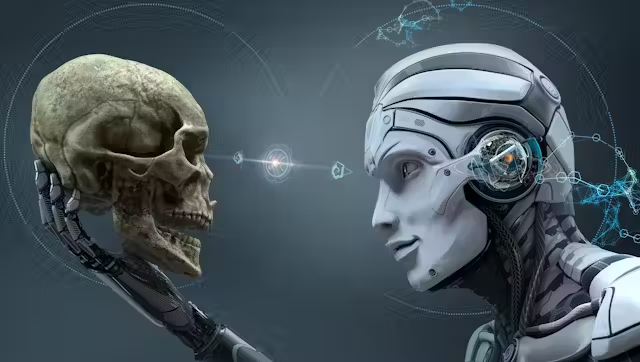Klarna CEO Who Praised AI for Replacing Workers Now Fears AI Could Replace His Own Role

Klarna CEO Sebastian Siemiatkowski, who previously embraced AI to optimize operations and reduce the workforce, now faces the unsettling possibility that AI could replace him as well. In a candid reflection, he acknowledged AI’s growing potential to take over complex tasks, including executive roles. While AI’s capabilities are still limited, its increasing influence signals a future where leadership roles may be reshaped by technology, challenging traditional concepts of management.
Klarna CEO Sebastian Siemiatkowski Confronts Irony of AI Replacing Workers—Could It Replace Him Too?
In an ironic turn of events, Sebastian Siemiatkowski, the CEO of Klarna, a leading fintech company, has found himself contemplating the very technology he championed for replacing workers—Artificial Intelligence (AI). Just last month, he proudly announced that Klarna had reduced its workforce by 22 percent after embracing AI, a move that helped the company attain a valuation exceeding $14 billion. Siemiatkowski emphasized how AI, particularly through its integration with OpenAI’s ChatGPT, had helped the company achieve the efficiency of 700 full-time employees.However, this reliance on AI has led to a rather unsettling realization for Siemiatkowski himself: could AI eventually replace him as CEO? The same technology that he had relied on to optimize company operations may one day render him redundant
Klarna CEO Acknowledges AI’s Potential to Replace CEOs, Admits It Could Disrupt Executive Roles
In a revealing tweet, Siemiatkowski mused that AI is capable of handling not just routine tasks but also the complex responsibilities that CEOs typically manage—tasks requiring both reasoning and experience. He candidly stated, “To me, AI is capable of doing all our jobs, my own included.” While confronting the possibility of being replaced by AI, Siemiatkowski admitted that such a future is inevitable. He acknowledged that AI’s key breakthrough—reasoning—has already been made, and it could soon disrupt workplaces across the world, including at the executive level.
AI Experts Warn That AI Could Automate Up to 80% of CEO Roles, Reducing Executive Costs
This view resonates with the concerns of many AI experts who have long warned that AI could potentially make high-level management roles obsolete. Former MIT AI Lab director, Anant Agarwal, suggested that up to 80 percent of a CEO’s job could be automated with AI. Given the vast salaries of CEOs, many companies could significantly cut costs by replacing executives with AI systems capable of efficiently managing operations and making strategic decisions based on data analysis.
Siemiatkowski Cautions Against Overestimating AI, Highlights Its Limitations in Emotional Intelligence and Leadership
Despite these possibilities, Siemiatkowski remains cautious about the current limitations of AI. While the technology excels at data processing and automating repetitive tasks, it still struggles with human traits such as emotional intelligence, adaptability, and leadership nuances—qualities essential for effective management. Siemiatkowski conceded that while AI holds great promise, it has yet to reach a stage where it can fully replicate the depth of human leadership. He acknowledged, “How exactly we will combine those building blocks of reason and knowledge to replicate the work we do today is not yet entirely solved.”
The Ongoing Debate: AI’s Growing Influence May Reshape Leadership Roles, but Full Replacement Remains Unlikely
The debate surrounding AI’s potential to replace jobs—especially at the executive level—is still unfolding. While some view AI as an inevitable disruptor of the workforce, others, including Siemiatkowski, choose to embrace it as a tool for exploration and adaptation rather than deny its existence. While AI is unlikely to entirely replace human leadership in the immediate future, its growing influence in business is undeniable, suggesting that the workforce of tomorrow may look very different from today’s.
Credits Freepik
Siemiatkowski Reflects on AI’s Potential to Surpass Human Capabilities and Reshape Leadership Roles
Siemiatkowski’s reflection offers a thought-provoking insight into the future of work, where AI might not only assist but potentially surpass human capabilities. As the technology continues to evolve, even the most senior positions in organizations may eventually face challenges from AI, reshaping the very nature of leadership in ways that were once unimaginable.






